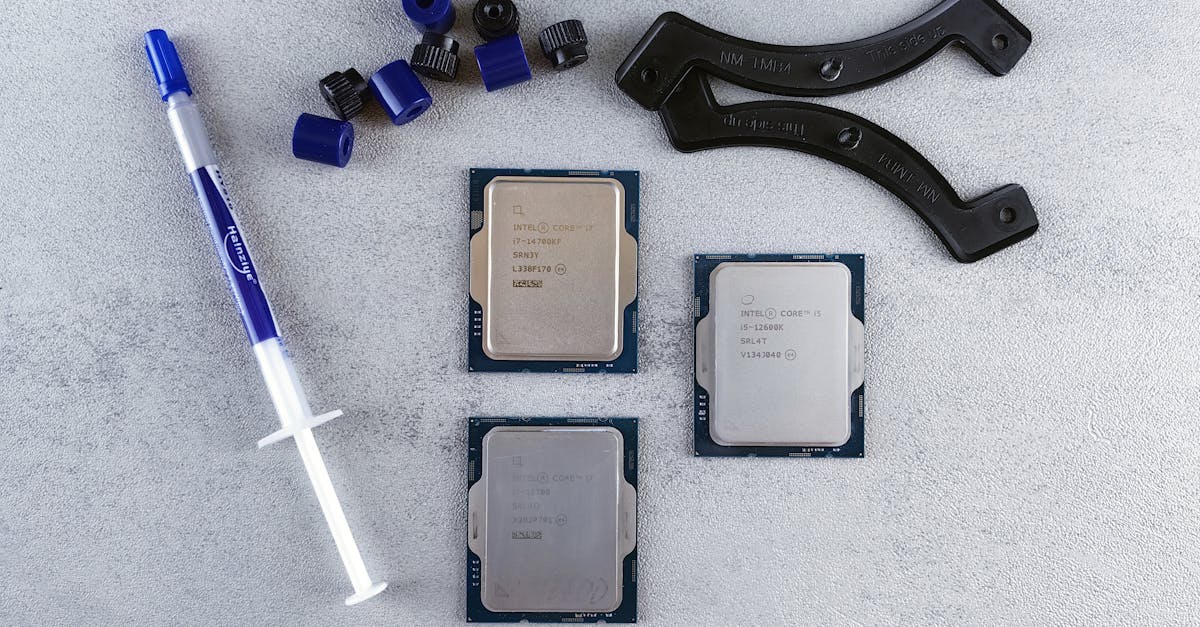The Clash of the Processors: Setting the Stage
In the ever-evolving world of computer technology, one debate has stood the test of time: Intel 5 vs Ryzen 5. Picture this: you’re in the market for a new processor, and the decision between these two titans is looming over you. You might find this helpful as we dive into the intricacies of both processors to determine which one truly reigns supreme.
To put it simply, both Intel and AMD have crafted impressive mid-range processors that cater to a wide range of users, from gamers to content creators. But what sets them apart? And more importantly, which one should you invest in? Let’s dive into the core aspects that define these processors and help you make an informed decision.
Performance Showdown: Speed, Efficiency, and Multitasking
When it comes to performance, both Intel and Ryzen have their strengths. The Intel Core i5 series is renowned for its high clock speeds and excellent single-core performance, making it a top choice for gamers who crave those high frame rates. On the other hand, the AMD Ryzen 5 series boasts superior multi-core performance, making it a powerhouse for multitasking and content creation.
Single-Core vs Multi-Core Performance
- Intel Core i5: Known for its high clock speeds, the Intel Core i5 excels in single-core tasks. This is particularly beneficial for gaming, where single-core performance can significantly impact frame rates. For example, the Intel Core i5-11600K has a base clock speed of 3.9 GHz, which can boost up to 4.9 GHz.
- AMD Ryzen 5: Ryzen processors, such as the Ryzen 5 5600X, are designed with multiple cores and threads, providing excellent multi-core performance. This makes them ideal for tasks like video editing, 3D rendering, and other CPU-intensive applications. The Ryzen 5 5600X, for instance, features 6 cores and 12 threads with a base clock of 3.7 GHz and a boost clock of 4.6 GHz.
Ever wonder why multi-core performance is so crucial for content creators? It’s because applications like Adobe Premiere Pro and Blender can utilize multiple cores to distribute tasks, resulting in faster rendering times and smoother workflows.
Power Consumption and Efficiency: Who Wins the Green Flag?
Power consumption and efficiency are critical factors to consider, especially in today’s eco-conscious world. It’s interesting how both Intel and AMD have approached this aspect differently.
Thermal Design Power (TDP)
- Intel Core i5: Generally, Intel processors have a higher TDP compared to their Ryzen counterparts. This means they can consume more power and generate more heat. For instance, the Intel Core i5-11600K has a TDP of 125W.
- AMD Ryzen 5: Ryzen processors are known for their energy efficiency. The Ryzen 5 5600X, for example, has a TDP of 65W, making it a more power-efficient option.
From my point of view, if you’re building a system with energy efficiency in mind, the Ryzen 5 series might be the better choice. Not only will it save you on electricity bills, but it will also generate less heat, potentially leading to a quieter system.
Price and Value: Getting the Most Bang for Your Buck
You won’t believe how competitive the pricing of these processors can be. Both Intel and AMD have strategically priced their mid-range processors to appeal to budget-conscious consumers without compromising on performance.
Price Comparison
- Intel Core i5: Typically, Intel processors tend to be slightly more expensive than their Ryzen counterparts. However, they offer robust performance, especially for gaming. The Intel Core i5-11600K, for instance, is priced around $250.
- AMD Ryzen 5: AMD has positioned the Ryzen 5 series as a value-oriented option, offering excellent performance at a competitive price. The Ryzen 5 5600X is priced around $300, but it often comes with bundled offers and discounts.
Now that I think about it, the value proposition of the Ryzen 5 series is hard to ignore. You get excellent multi-core performance and energy efficiency at a reasonable price, making it a compelling choice for many users.
Compatibility and Future-Proofing: Building for Tomorrow
When it comes to building a PC, compatibility and future-proofing are crucial considerations. You’d be surprised at how these factors can influence your decision between Intel and Ryzen processors.
Motherboard and Socket Compatibility
- Intel Core i5: Intel processors typically require specific motherboards with compatible chipsets. For example, the Intel Core i5-11600K requires a motherboard with an LGA 1200 socket. This can limit your upgrade options in the future, as Intel tends to change socket types with new generations.
- AMD Ryzen 5: AMD’s Ryzen processors use the AM4 socket, which has been in use for several generations. This means that if you invest in a Ryzen-compatible motherboard, you have a higher chance of upgrading to a newer Ryzen processor without needing to change your motherboard.
I’ve often thought about the importance of future-proofing when building a PC. Personally, I’ve found that investing in a Ryzen-compatible motherboard offers more flexibility for future upgrades, making it a smart long-term investment.
Real-World Applications: Which Processor Suits Your Needs?
Let me tell you, the choice between Intel and Ryzen ultimately depends on your specific needs and use cases. Here are some scenarios to help you decide:
Gaming
If you’re a gamer, the Intel Core i5 series might be the better choice due to its superior single-core performance. Games like “Cyberpunk 2077” and “Call of Duty: Warzone” benefit from higher clock speeds, resulting in smoother gameplay and higher frame rates.
Content Creation
For content creators, the Ryzen 5 series is a clear winner. Its multi-core performance excels in tasks like video editing, 3D rendering, and streaming. Applications like Adobe Premiere Pro and DaVinci Resolve can take full advantage of the multiple cores and threads offered by Ryzen processors.
Everyday Use
For everyday tasks like browsing, office work, and light gaming, both Intel and Ryzen processors offer excellent performance. However, the Ryzen 5 series’ energy efficiency and value make it a compelling choice for budget-conscious users.
The Verdict: Making the Final Decision
So, which processor reigns supreme? The truth is, both Intel and Ryzen have their strengths and weaknesses, and the best choice depends on your specific needs and preferences.
Key Takeaways
- Intel Core i5: Best for gamers who prioritize single-core performance and high clock speeds.
- AMD Ryzen 5: Ideal for content creators and multitaskers who need superior multi-core performance and energy efficiency.
It dawned on me that the battle between Intel and Ryzen is not about finding a definitive winner but about identifying the right tool for the job. By understanding your specific requirements and considering the factors we’ve discussed, you can make an informed decision that best suits your needs.
In my opinion, both Intel and Ryzen have crafted exceptional processors that cater to different audiences. Whether you’re a gamer, content creator, or everyday user, there’s a processor out there that’s perfect for you. So, take the time to assess your needs, do your research, and choose the processor that will elevate your computing experience to new heights.
Now you know the ins and outs of the Intel 5 vs Ryzen 5 debate. Armed with this knowledge, you’re ready to make an informed decision and build the PC of your dreams. Happy computing!










